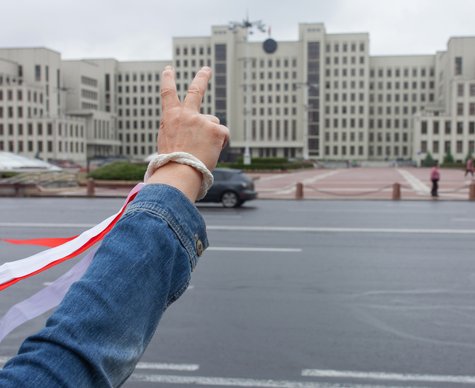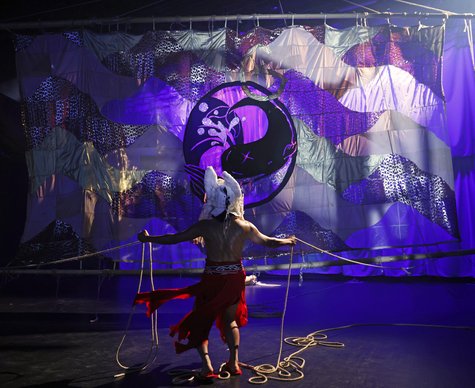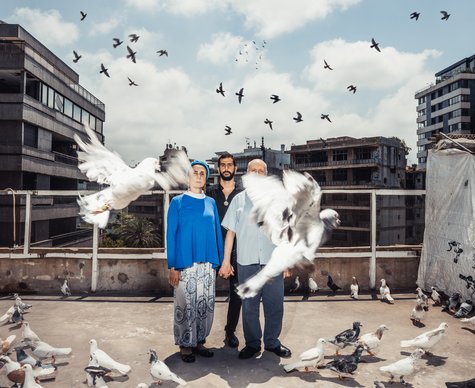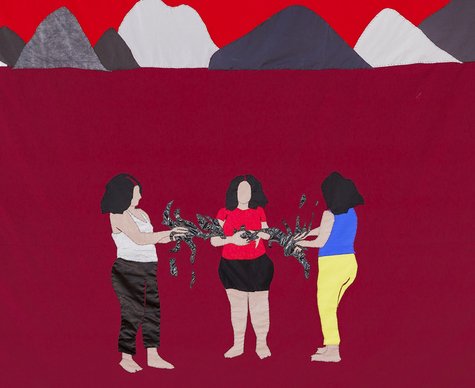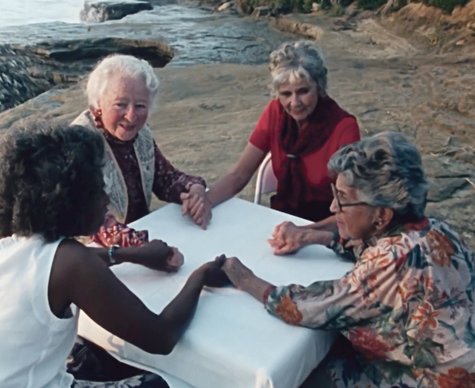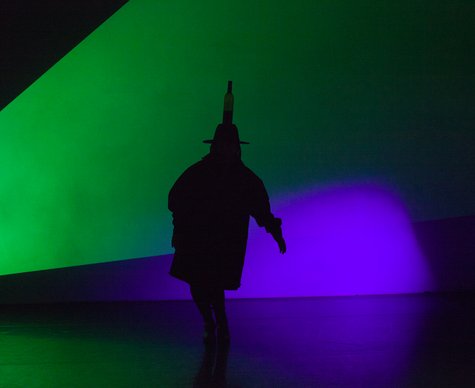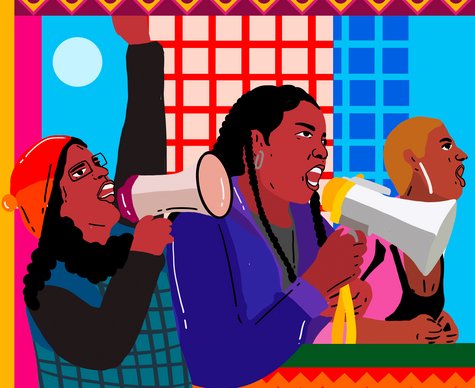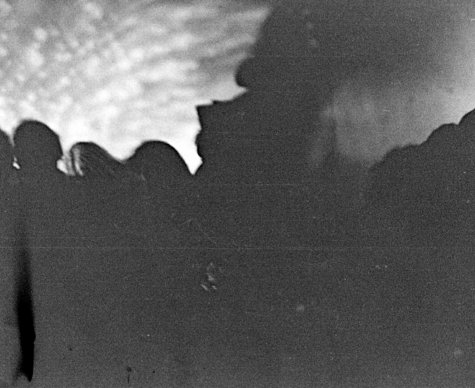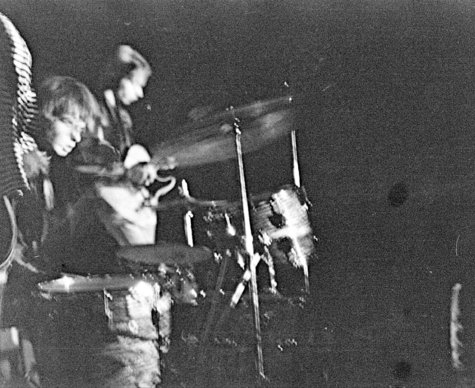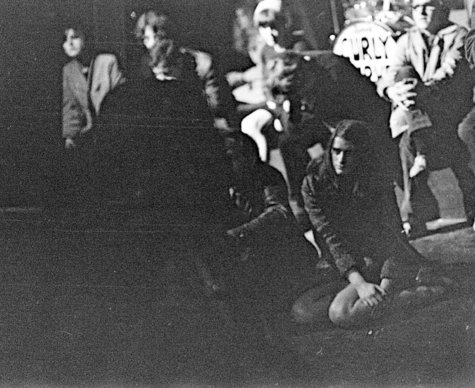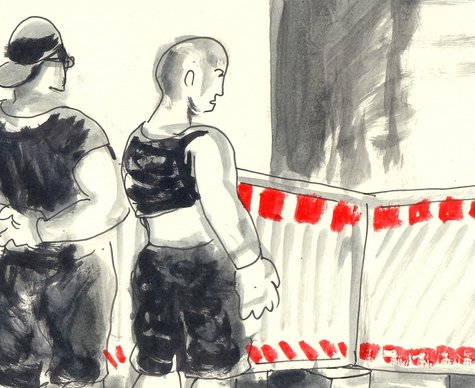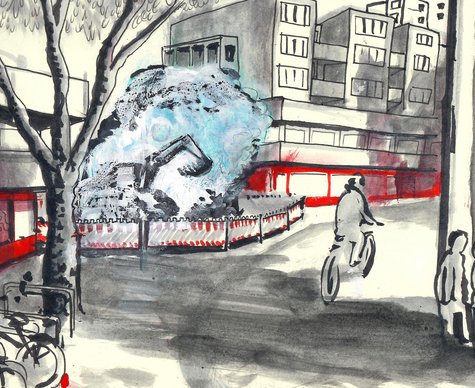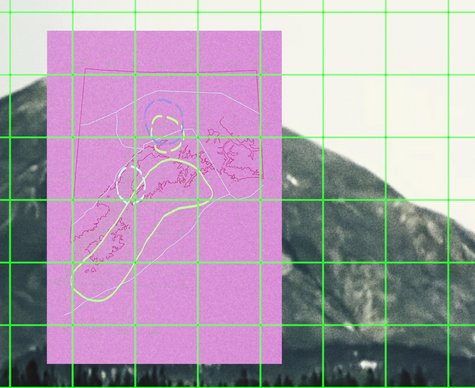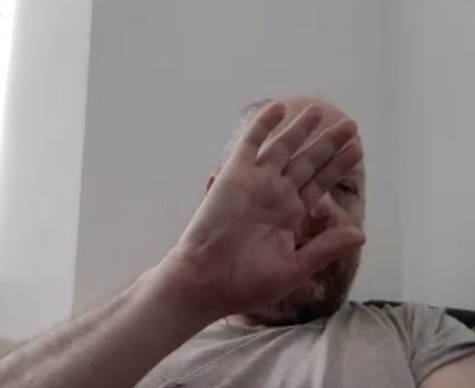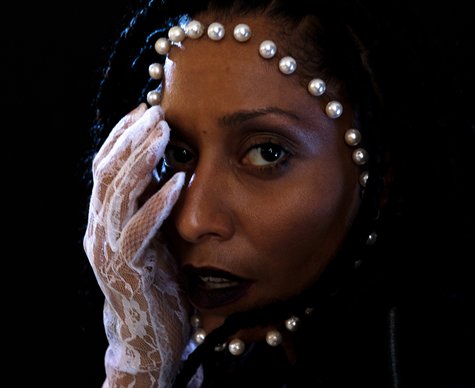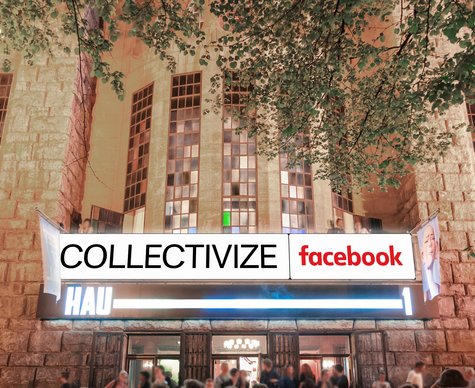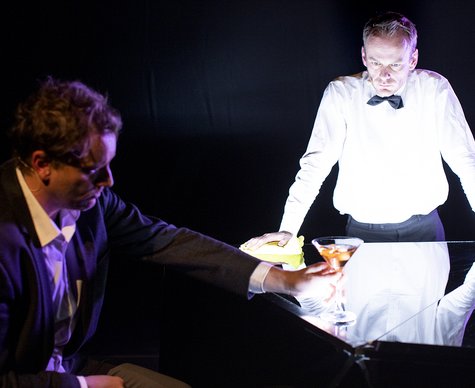Kink Gong "Acoustic Trip in Zomia" / Christoph Schlingensief's "African Twin Towers" re-played by Carolin Brandl & Hanno Leichtmann
Part of CTM 2016
- Music
The musician Hanno Leichtmann and filmmaker Carolin Brandl bring the lunatic, hypnotic musical film “African Twin Towers” back to life using as yet unpublished, self-made footage* by Christoph Schlingensief.
* As a supplement to the actual film footage, Schlingensief documented the scenes himself with a Minox camera. The intimate close-ups and unique aesthetic exhibited by the the Minox recordings fills in gaps and omissions in the primary material.
Christoph Schlingensief’s unfinished film project—the film that never existed—was originally conceived as a feature-length with an unusual cast. Patti Smith, Robert Stadlober, Klaus Beyer and the Fassbinder actress Irm Hermann followed the late theatre, opera, and film director and artist, who heralded failure as opportunity and as an open research project, to the port city of Lüderitz in Namibia’s Township Area 7. After mere days, most people involved had reached their wit’s end.
The film’s plot revolves around descendants of Johann Sebastian Bach who wish to organize Bach festivals in the vestiges of southwest Africa’s former German colonies and to force German culture upon the shanties of Area 7. This process ends up ridden with obstacles and effectively induces the dissolution of the family and its members. From this point on, the film fuses explorations of German megalomania, Richard Wagner, African hunger crises, colonial history, shamanism, Nordic mythology, and innumerable other themes into a bizarre, surreal cinematic whirlwind in which the director, in the act of directing, himself emerges as a part of the film and all levels blur together. With the ambiguous title “The African Twin Towers”, Schlingensief pointed to the thousands of daily poverty-related deaths in Africa and to hunger as crime against humanity that is denial of assistance. He identified in the hunger crisis an African equivalent to the September 11th attacks on New York’s World Trade Center—an event in whose public shadow exploitative political policies elsewhere became invisible.
Sections of the soundtrack, which was recorded in Hanno Leichtmann’s studio by Leichtmann together with Christoph Schlingensief, John Nikenhuis, and Indian musicians, were released in 2010 on the label Dekorder. For “African Twin Towers (re)played”, Leichtmann has composed new material based on the setup and spirit of the original recordings, and interweaves this material with remastered versions of the first soundtrack.
For “African Twin Towers (re)played”, the filmmaker and video artist Carolin Brandl only uses the Minox footage personally filmed by Schlingensief. In doing so, she reassembles fragments of his surreal and overpowering visual universe. As they have in their earlier work together, Brandl and Leichtmann interact using a kind of ping-pong method in which equivalent image and sound are juxtaposed and interwoven.
A part of the proceeds of the event will go to the African Opera Village www.operndorf-afrika.com
Before this, the musician and DIY music ethnographer Laurent Jeanneau presents his project Kink Gong. Since 1999, over many trips to Southeast Asia, Jeanneau has documented the local music traditions of ethnic minorities whose cultures are threatened by modernisation. Jeanneau collects and compiles these unedited recordings into an ever-growing sound and video archive. Excerpts of this archival work are published on the label Sublime Frequencies and his own label. In addition, Jeanneau uses these recordings, which focus mostly on vocal and percussion music, as the starting point for his own emotionally-charged electronic experiments and sound compositions then broadened by other field recordings. In these compositions, the traditions and avant-gardes of a diverse range of places merge into new, contemporary statements.
CTM Festival returns to HAU Hebbel am Ufer from 30 January to 7 February. The 17th edition’s music programme is elaborated through intensive collaboration with guest co-curator Rabih Beaini, while the exhibition and discourse programme is created in close collaboration with Swiss-based Norient. Special projects and commissions, as well as artists and sound cultures emanating from less familiar countries and localities and often operating on the fringes of the electronic circuit are featured in greater numbers than ever before. Under the shadow of a global conflict centered on increasingly radical disputes over drawing or dissolving borders, the festival’s “New Geographies” theme aims to explore music and sound practices that respond to these developments, and to provide the conceptual tools needed to approach the complexities of a polycentric, polychromatic, and increasingly hybrid (music) world with greater openness.
The full festival programme is available via: www.ctm-festival.de.
“African Twin Towers” is a production of Filmgalerie 451.
CTM 2016 likes to thank the Filmgalerie 451 and the Schlingensief office as well as Frieder Schlaich and Aino Laberenz for their support in the realisation of “African Twin Towers (re)played”.
CTM 2016 is funded by Hauptstadtkulturfonds, the Federal Government Commissioner for Culture and Media, the Musicboard Berlin and the Creative Europe programme of the European Union. In collaboration with transmediale, Kulturprojekte Berlin, SHAPE and SoCCoS.
Dates
Location
HAU1
Stresemannstr. 29, 10963 BerlinThere are two marked parking spots in front of the building. Access to the Parkett by means of a separate entrance with lift when necessary. Barrier-free restroom facilities are available. Tickets for wheelchair users and accompanying persons can be booked via the ticketing system. If you need any help, please contact our Ticketing & Service team at +49 (0)30 259004-27 or send us an email at
tickets@hebbel-am-ufer.de.




















